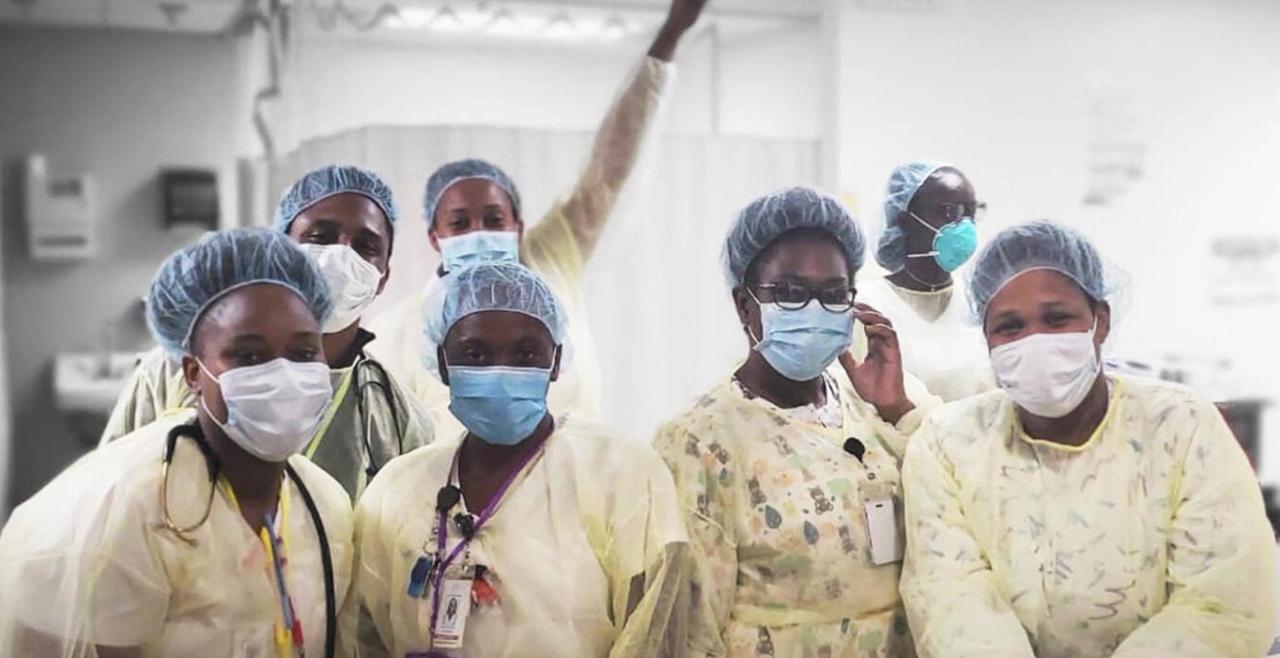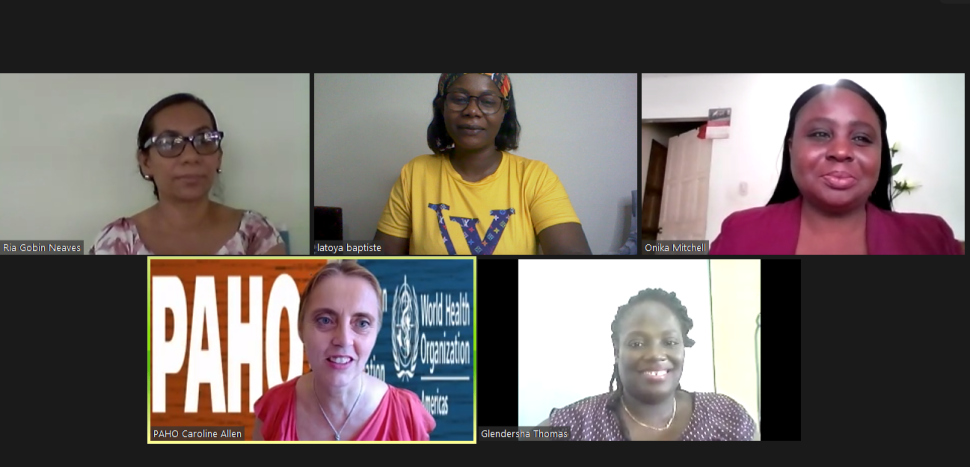Strengthening care for survivors of intimate partner and sexual violence

PORT OF SPAIN, Trinidad - In Trinidad and Tobago, healthcare workers are the people that survivors of family violence most frequently tell about their experiences, after their family. According to data from the National Women's Health Survey, 13% of women survivors of physical and sexual violence by intimate partners told a health care worker, 5% told the police and 4% told a religious leader. Of women who experienced forced sexual intercourse, 12% reported the incident to a health care provider.
Healthcare providers are in a prime position to provide critical support. Vicky Valley, a Medical Social Worker with the North Central Regional Health Authority recently attended a Spotlight-supported skills-building workshop for front-line workers to strengthen care for survivors of intimate partner and sexual violence. In her role, she frequently interacts with primarily female survivors who are seeking refuge and works to find safe housing accommodations for them.
Valley said the training sensitized her to how important the initial interaction with a survivor of violence is to their overall sense of safety and trust. She said she gained a better understanding of how poor communication can perpetuate the cultural stigma and the belief that a woman must be stupid or weak for staying in an abusive situation.
"The training gave me a framework as a practitioner to connect with the client through asking the appropriate questions and an increased consciousness about how I create an environment of confidentiality and give them some hope as they navigate their options." — Vicky Valley, Medical Social Worker
The skill-building, three-day virtual workshop sessions included participants from the five Regional Health Authorities (RHAs) and representatives from the University of the West Indies (UWI) School of Nursing. Modules were based on the World Health Organization's LIVES (Listen, Inquire, Validate, Enhance Safety, Support) approach with instruction on identifying and assessing violence against women, understanding how perceptions and beliefs affect care and providing referrals.
As a State of Emergency remains in effect in Trinidad and Tobago due to COVID-19, women and girls continue to be at an increased risk of violence. The Trinidad and Tobago Police Service's Gender-Based Violence Unit received 1,132 reports between January and April this year, compared to 781 reports for the same period last year.
Dr. LaToya Baptiste Manzano, Acting Registrar in the Accident and Emergency Department, at the Sangre Grande Hospital said the workshop impacted the way she engages with her patients. She said she has shifted from delivering just a clinical assessment as a trained medical professional in an accident-emergency situation, to an awareness of what is required and appropriate with a survivor of Intimate Partner Violence. "When one in three women have experienced intimate partner violence the likelihood of encountering a victim is very high."
"The workshop raised my awareness of how much of a public health problem gender-based violence is. We had no idea it was that bad." — Dr. LaToya Baptise Manzano, Acting Registrar, Accident and Emergency.
Baptiste Manzano said she gained a new awareness of the direct correlation between the care received and the way patients perceive the health care system. "I have a better understanding of the barriers faced by survivors seeking support, you can't simply assume that they can just leave their situation or that it is easy to do so."
Spotlight Initiative in collaboration with the Ministry of Health in Trinidad and Tobago is working to build capacity around health services to respond to violence. Following the workshops, each of the teams of trainees will target and train 50 persons in their respective Regional Health Authority.
The Spotlight Initiative is a global partnership between the European Union and the United Nations to end violence against women and girls. In Trinidad and Tobago, the programme is being implemented in the target communities of Tunapuna/Piarco, Mayaro/Rio Claro, and Tobago with a focus on family violence prevention and support services.
By Tracy Chiming Lewis

